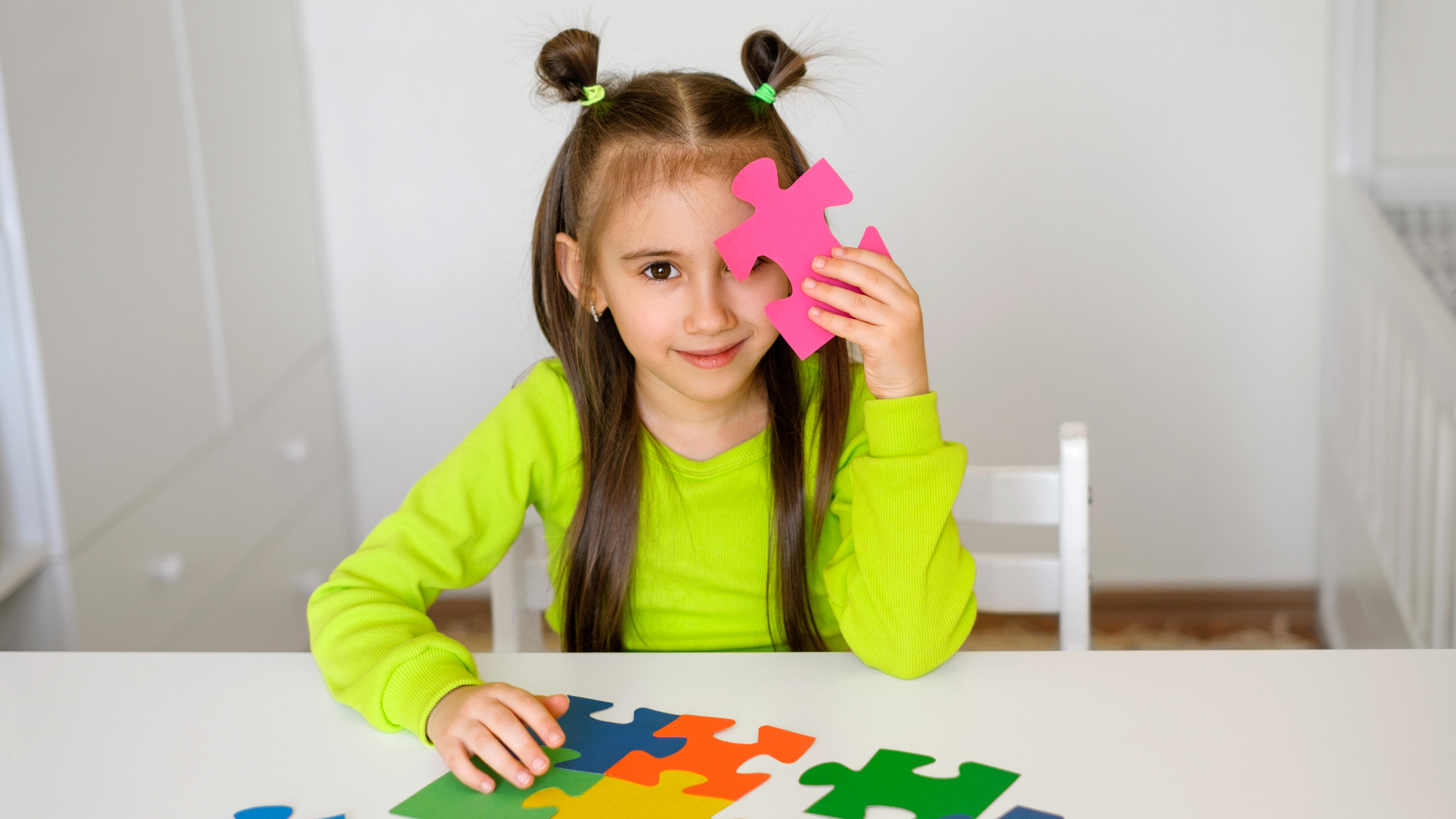

How are autistic children intellectually different from children with no learning disability?
“Everything has a reason, every behaviour!”
- Amanda J. Friedman
We have a large population of neurotypical children (children who do not have learning disabilities), and statistics show that one in every hundred children has autism. Autism constitutes a range of conditions that affect brain development. Its characteristics include trouble with social interaction and communication, patterns in repetitive behaviours to follow a routine, and sensorial needs.
On a typical day, children with no learning difficulties find it quite easy to convey their needs and express their emotions. Children with autism have difficulties communicating their needs, and responding to and reacting to actions, behaviours, and situations. While all children on the spectrum may share common symptoms, each individual is unique, as are their strengths and challenges. It is significant and essential for parents, teachers, and even therapists to understand the level of diagnosis as it helps to prepare them for the types of difficulties the child may face in his or her daily life.
Children with autism have varying abilities and needs that can evolve throughout life. Autism affects schooling and employment opportunities. The intellectual functioning of autistic people differs widely. The Diagnostic and Statistical Manual of Mental Disorders (DSM-5) is a standard manual used by healthcare providers worldwide to identify various mental health issues. The DSM-5 categories Autism Spectrum Disorder (ASD) into three different levels based on severity and the type of support required in everyday living.
Level 1 ASD is the mildest or most "high-functioning" kind of Autism. The intellectual level of children with level 1 Autism differs from those with no learning disabilities. They can speak with others in whole sentences, but they struggle with back-and-forth conversations. They make an effort to make friends but are unable to analyse the social cues from others' body language or sarcasm. They tend to adhere to a schedule yet struggle to plan autonomously. These autistic children can study in a class of 15-20 students in an inclusive school with the assistance of a buddy or a shadow teacher who is aware of the students' skill sets and needs and can implement strategies provided by the remedial teachers to overcome the academic obstacles.
Level 2 and Level 3 ASD refers to children and people who struggle with verbal and nonverbal communication as well as social skills. They have difficulties transitioning their attention from one task to another. They are more likely to engage in repetitive behaviours, which can interfere with their learning. Children with autism may, sometimes, have comorbidities such as Attention Deficit Disorder (ADD), Attention Deficit Hyperactivity Disorder (ADHD), Sleep Disorder, Epilepsy, Bipolar Disorder, and other conditions. These comorbidities intensify the difficulties that autistic children already face.
The curriculum at most state board and central board schools involves group assignments, projects, and presentations, which require the students to connect socially with other children in the class, and most of them can do so because of their high socioeconomic quotient. However, children with autism may struggle with something as simple as asking for basic assistance or initiating a discussion with their peers. Each academic year, there are a variety of school events such as annual day, sports day, field trips, and school picnics, all of which are largely group activities that most neurotypical children enjoy and look forward to. Children on the autism spectrum are sensitive to varied sounds in their environment, excessive visual stimulation, a change in routine, a change in the manner of instructions delivered, or a change in a location without prior knowledge. Celebrations such as birthday parties, festivals, and important days such as Independence Day are times for everyone to have fun, make memories, and recall past events with expressions and emotions. On such special occasions, children with autism may be unable to comprehend or express their emotions independently.
Having said that, all autistic children can be trained. A wide range of interventions, beginning in early childhood and continuing throughout life, can improve the development, health, well-being, and quality of life of autistic individuals. Aditya Birla Integrated School (TABIS) as well as other special needs schools have highly qualified and experienced facilitators, therapists, and a medical director who collaborate with parents of special needs children to ensure each student's developmental goals are accomplished with maximum independence. The type of support may vary depending on the needs of the individual, which is commonly offered in special schools for all children with special needs.
In simple terms, intellect is the mind's ability to think and learn. No matter how differently we think, and how differently we learn, we all have our own unique way of doing things and that’s what AUTISM is all about.
Also read,